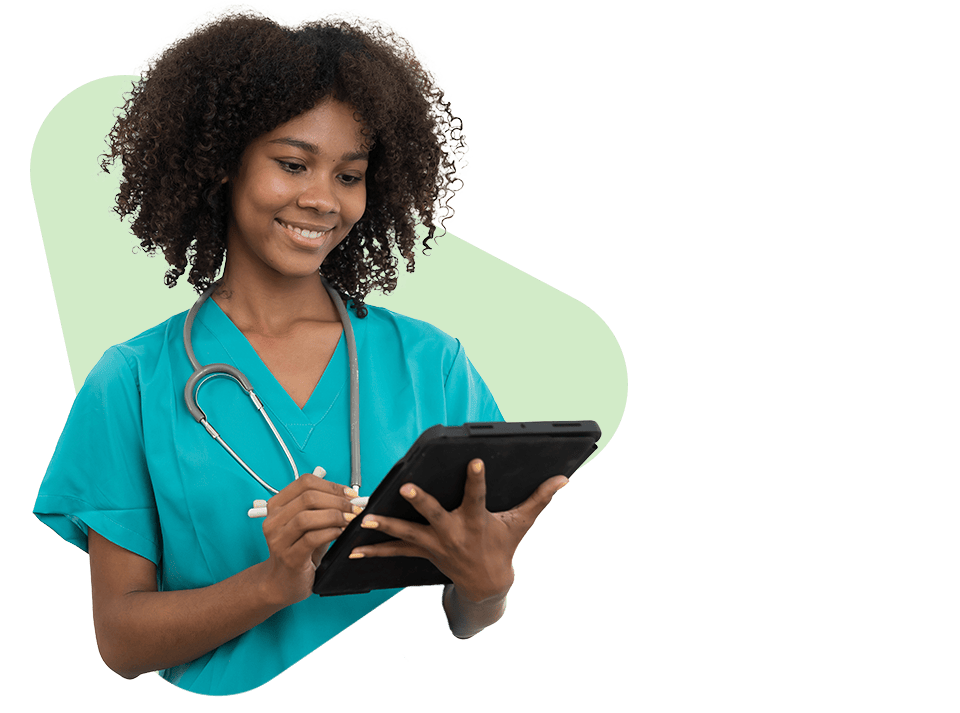Getting into your ideal residency program in the United States relies heavily on the application you put together. There are a few important steps you should know to be a competitive applicant. First, understand the process of being matched into a residency program. For instance, you will need to know what the Electronic Residency Application Service and the National Resident Matching Program mean for your placement. Second, you should know the type of experiences available to you that can increase your chances of being accepted into your dream program. Some of these include away rotations, clinical experience, and audition rotations.
Above all, understand how to combine your experience, scores, and necessary documents to be a competitive and strategic candidate.
What is the Match?
The Match, formally known as the National Resident Matching Program (NRMP), is the primary system used to assign residents to a hospital to complete their residency. It is a combination of the NRMP and the Electronic Residency Application Service (ERAS). Here is what you need to know about both of these platforms:
Electronic Residency Application Service (ERAS)
The ERAS streamlines the residency application process. It includes four different sections: MyERAS, Dean’s Office WorkStation, Letters of Recommendation Portal, and the Program Director’s WorkStation. The first section important to your application will be the Dean’s Office WorkStation.
The Dean’s Office WorkStation will send a token, or invitation, to you so you can register with MyERAS. Once you get this invitation, it’s time to get started. You will want to complete your application, rank your programs, assign supporting documents, and then formally apply to the programs. The MyERAS will be where most of the work on your end will be uploaded and submitted.
Once you complete your portion of the application, the designated dean’s office and letters of recommendation authors will need to upload supporting documents. Examining boards will then receive and process your request for transcripts. The programs will receive all of your materials through the Program Director’s WorkStation.
Once you have completed all the above steps, it’s time to complete the final technical step on your way to becoming a resident. This is where the NRMP will be important.
The National Resident Matching Program
The National Resident Matching Program is what will decide which program will be the best fit for you. It is an algorithm based on the ranking from you of the programs you’re interested in and the ranking from the programs of their top candidates. To create your profile on this site, you will need your AAMC ID, USMLE ID (if you’re a US student), ECFMG ID (if you’re an international medical graduate), and possibly your AOA ID and NBOME (if you’re a US student). Once you have completed your basic profile and work/volunteer experiences, you will have to wait to see what the future holds for your residency.
Here is an important tip as you consider your program rankings: the longer your list, the more likely you will be matched. The algorithm of the Match is based on ranking of both the students and the programs. For instance, if someone ranks a program as their first choice, and the program ranks the candidate also as their first choice, the match is made final. This candidate must complete their residency at the assigned hospital and program.
On the flip side, though, if a candidate only ranks one program, that would be extremely risky. If that program lists that candidate lower on their rankings, and fill their positions with candidates whom they ranked higher, then the candidate who only ranked one program will be left unmatched.
If you are an IMG, make sure to do research to find out if a program accepts IMGs.
Matching as an IMG
Getting into residency in the US for International Medical Graduates (IMGs) involves a few extra steps, but it is definitely doable! As you can see from the graphic below, a high percentage of IMGs (non-US citizens) and US-IMGs (US citizens who studied medicine abroad) matched into their preferred specialties in 2020:
Match rates of international medical graduates: percent matched by preferred specialty and IMG applicant type

Firstly, you should plan to take Step 3. While it is not mandatory for the application, many program directors equivocate a good score with confidence you will obtain a final license to practice medicine in the United States as the exam is meant for that purpose.
Secondly, you will need to obtain a minimum score of 350 (B) in each component (Listening, Reading, Writing, Speaking) on the Occupational English Test (OET) Medicine for the 2021 match. Given the current pandemic situation at the time of publication of this post, Step 2 CS is temporarily suspended and thus the OET Medicine test is meant to serve in its place. This test will assess your communication and interpersonal skills in a healthcare facility to see how comprehensive you can be with the patient.
Thirdly, you will need a good external internship experience and connections with US doctors to assist your application. You should apply to hospitals with which someone from your country or university is connected. There are a few places you can look for these connections: Facebook groups and LinkedIn specifically are useful resources. You can also make connections during international conferences and sign up for American societies for the field(s) of your interest. There is also a platform, Matcharesident.com, that can filter out residency programs based on your background. Make sure to double check directly with your desired programs to make sure this information provided on such a website is up to date.
Make sure to note any additional requirements for IMGs for your programs of choice, as well as potential adaptations to your application timeline compared to US-based medical students!
Hands-on Experiences
Regardless of whether you’re an IMG or a US-based applicant, the hands-on experience you already have in the medical field will also play a deciding role in your residency placement. There are a few experiences and applications you could explore: the Visiting Student Application Service, away rotations, and audition rotations.
Visiting Student Application Service
The Visiting Student Application Service is connected to away rotations. You will most likely use it in your third year of medical school to apply to elective rotations. Within this application service, you will need a short bio and personal statement. The short bio should include details about yourself that highlight your previous experience and future goals. It is a core part of the application. The personal statement is used when applying to electives. You will want to include similar info to the short bio, but you also want to add a sentence or two about a specific institution to make it more personal.
Away Rotations
Away rotations are elective opportunities that take place away from your “home” institution. It can be in a different state or even in a different country. You will want to research and apply to programs during your third year (based on the US standard 4-year medical school). The decision to complete an away rotation can benefit your application, but there are a lot of technicalities to consider. You will need to figure out housing options, transportation plans, and class schedules that will allow you to take that time away from your medical school.
Audition Rotations
Audition rotations are two- to four-week residency program “interviews.” You can apply for these rotations during your third year and complete them in your fourth year of medical school. You will have the opportunity to learn more about the program(s) in which you’re interested. The program will also be able to understand you better and decide if you would be a good fit. If you’re impressed with the program, this audition rotation will be an opportunity to impress directors and stand out. These directors can also write letters of recommendation.
Letters of Recommendation
Speaking of which, letters of recommendation are an extremely important part of your application. It will show what you will fit into a professional workspace and what others consider to be your strengths. This information will be critical to residency programs.
The best place to start with requesting a letter of recommendation is figuring out who can highlight your abilities best. You should start by using your connections to attending physicians from sub-internships or other professional experiences. While collecting these letters of recommendation, you need to remember that most programs will request a minimum of three recommendation letters. The suggested breakdown of letters is two from science professors and one from someone who is not a science professor, such as an attending physician.
In addition to the (minimum) three letters of recommendation, you will need a pre-medical committee letter. The pre-medical committee letter is written by the undergraduate pre-med committee, specifically recommending you. This letter will summarize comments made by various committee members supporting your admission to a program.
Above all, this recommendation should highlight your unique characteristics and credentials, the demands of medical school, and how you’re qualified for medical school from an outside perspective.




